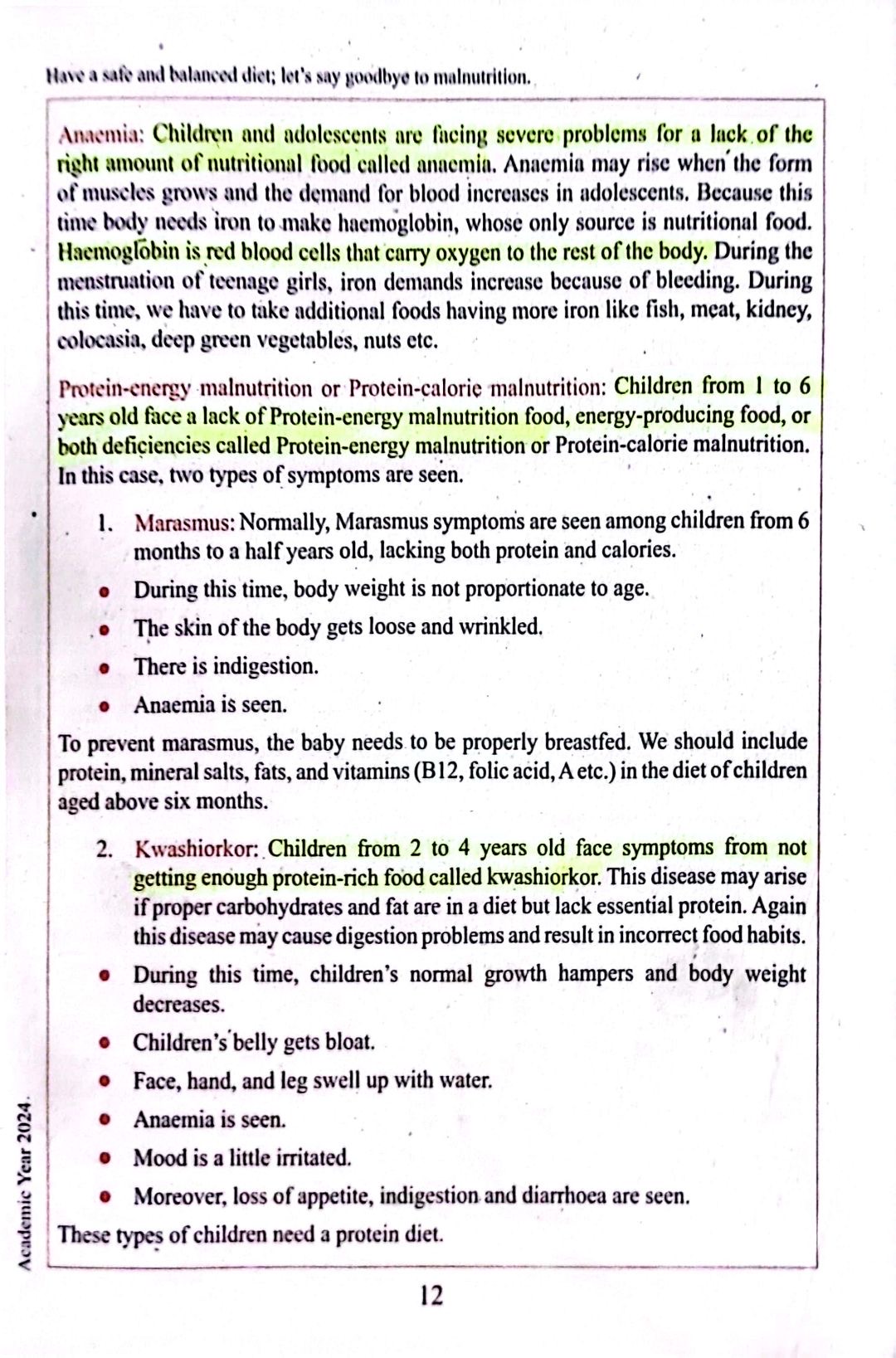What are the causes and symptoms of anemia, marasmus, and kwashiorkor in children?

Understand the Problem
The text provides information about nutritional deficiencies in children, specifically focusing on anemia and two types of malnutrition: marasmus and kwashiorkor. It explains the causes, symptoms, and prevention measures for these conditions, emphasizing the importance of a balanced diet.
Answer
Anemia: Nutritional and iron deficiency. Marasmus: Protein-calorie deficiency. Kwashiorkor: Protein deficiency.
Anemia is caused by a lack of nutritional food and iron, leading to reduced hemoglobin. Marasmus results from a deficiency of both protein and calories, causing weight loss and loose skin. Kwashiorkor occurs due to severe protein deficiency, leading to swelling and bloat.
Answer for screen readers
Anemia is caused by a lack of nutritional food and iron, leading to reduced hemoglobin. Marasmus results from a deficiency of both protein and calories, causing weight loss and loose skin. Kwashiorkor occurs due to severe protein deficiency, leading to swelling and bloat.
More Information
Anemia occurs often in adolescents due to increased blood demand, particularly in teenage girls. Marasmus and kwashiorkor are severe forms of malnutrition affecting young children, with marasmus resulting in wasting and kwashiorkor causing swelling.
Tips
Ensure adequate protein and caloric intake in children's diets to prevent marasmus and kwashiorkor. Include iron-rich foods to prevent anemia.
Sources
- Kwashiorkor: Definition, Symptoms, Causes & Diagnosis - my.clevelandclinic.org
- Marasmus: Definition, Symptoms & Causes - Cleveland Clinic - my.clevelandclinic.org
AI-generated content may contain errors. Please verify critical information